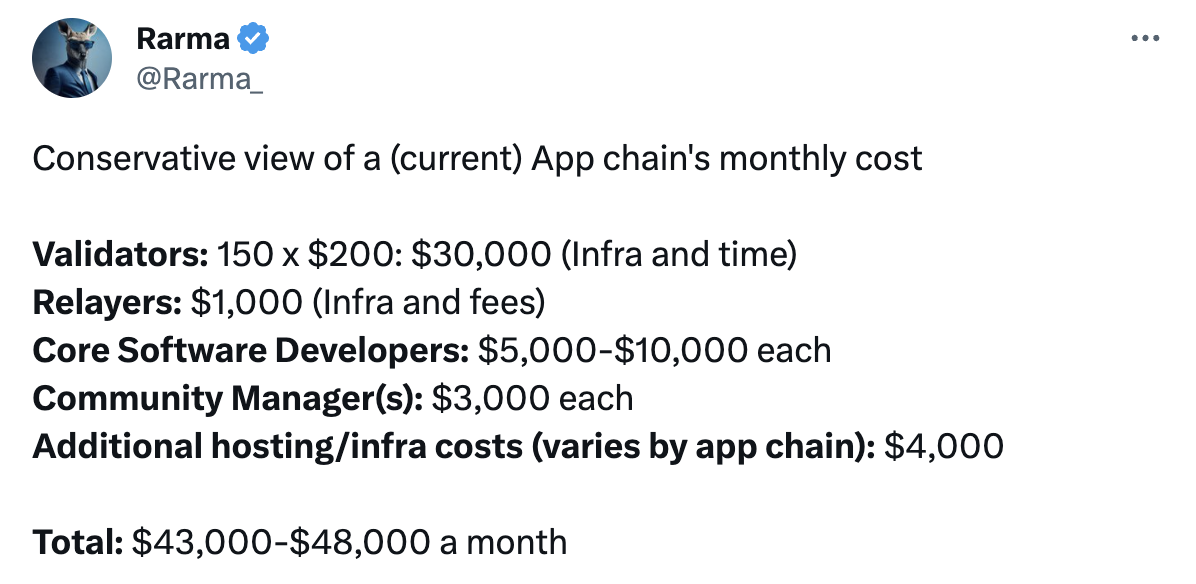 Genegated on the prompt: “Cosmos validators ensure security”
Genegated on the prompt: “Cosmos validators ensure security”
In the quirky world of Cosmos, we had a bit of a theater act unfold this past week. Enter stage right: Proposal #818. The story’s gist? Amidst the razzle-dazzle of the Neutron network upgrade, a pair of validators pulled off a double signature misstep. But ah, the twist! Neutron, being the outsourcing aficionado that it is, handed over its validation duties to Cosmos Hub. This means, dear reader, Neutron can’t dock these validators’ pay for their hiccup. So, where did this drama head next? Why, the grand voting stage of the Cosmos network!
Now, one might think that such slip-ups would be met with a stern gaze and a firm “Penalty”. But oh, how the plot thickened! The proposal’s review went from being a poised discussion to something resembling an improv comedy night. Some validators took the mic, not to critique but to croon a defense ballad for the errant ones. Their logic was as unshakable as Jell-O: “Sure, they ran a red light, but hey, no cars were harmed!”
Before we dive into a moral maze about the validator community’s ethos, let’s just pause and soak in the revelation. The Church had foretold of a time when the amateurs would exit, stage left, in the face of the next bullrun blockbuster. Why? Because nailing this performance isn’t just about knowing the technical dance moves. It’s about consistency, adhering to the script, and mastering the art of dodging risks. And as the curtain falls, it’s clear: the current ensemble needs a few more rehearsals.
“So true 😖”
Guard Dogs for Empty Houses
Popping over to CyberChurch’s recent congregation, the buzz was all about the Desmos Foundation Delegation Program. They’re in the middle of a delegation reshuffle, and the red carpet was rolled out for validators to strut their credentials. Now, word on the aisle is that The Church decided to stay out of this grand slumber party. Their rationale? As of now, their achievement list for Desmos reads somewhat like my current Twitter – lots of ambitions, not much else. Sure, over in the network-next-door, The Church has managed to rally the crème de la crème of crypto crusaders, all set on world domination, erm, I mean, victory on Desmos. But plans, however grandiose, don’t get the champagne popped – actions do.
Segueing from there, let’s dive into the swirling whirlpool of the Cosmos ecosystem. On the ledger today, we’ve got a smorgasbord of projects – each sporting a nifty token and a vague product blueprint (or the semblance of one). But here’s the kicker – only a select few show any real signs of life or utility that would make users or developers bat an eyelid.
So, while it may sound uncharitable, the reality is stark: most projects are about as impactful as a Santa Claus: full of promises, but in the end, it’s your parents buying the gifts. These fledgling ventures, with their tentative first steps, might eventually blossom into one or two success stories. Standard venture industry statistics, you’d say?
But here’s where the plot goes a bit awry. In the esteemed world of venture capitalism, burning through investor cash on non-essentials is, mildly put, frowned upon. In the less glamorous real world, that’s a one-way ticket to the exit, often with a side of legal drama.
Scrolling through the Twitterverse, my gaze was caught by this:

Now, while I won’t get mired in the minutiae of those figures (which seem more art than exact science), there’s a glaring line item that’s tough to ignore.
Validator set maintenance isn’t small change, my friends. Were I donning the hat of a prudent startup steward, especially in the bleak winters of a bear market, I’d be taking a hard, skeptical look at this expenditure. One does wonder, what’s the ROI on this? Any strategies to pare this down without compromising on value?
Of course, I’m not naive. Validators serve as the fortress walls guarding transactions, the linchpin of blockchain security.
But here’s a twist in our tale: why would a startup, devoid of a concrete product and a revenue stream, splurge on round-the-clock protection from an army of, quite frankly, amateur nightwatchmen (and our earlier saga clearly illustrates that even the mighty Hub isn’t immune to some rookie moves)? Is there truly a treasure trove inside warranting such heavy guarding? Or could we adopt a more phased approach to security, scaling it up as tangible value unfolds? Are the Foundation and its team embroiled in a Shakespearean distrust saga, necessitating a horde of middlemen for each transaction? These riddles, my friends, have me pondering late into the night.
Dance of Decentralization: Quantity vs. Quality
Acknowledged, scaling down a validator set is akin to trying to put toothpaste back in the tube – complex and messy.
Recently, The Church flexed its democratic muscles, firmly hitting “No_with_Veto” on a proposal regarding the trimming of validators on Desmos Network. The rationale? An ostensibly capricious motive: bid farewell to 25 teams – each with potential value adds – to achieve a minuscule technical optimization? Such gambits shouldn’t grace the table if the network aspires for shrewd trade-offs. After all, a move with potential casualties but zilch tangible gains is a bad move.
If we’re talking substantial benefits, then slashing the validator numbers by a whopping 90% or 95% might merit discussion. Surely, this would jolt the slumbering ranks accustomed to earning just by switching their PCs on. But were there in the white paper ever guarantees of endless handouts for these folks?
Let’s address the elephant in the room: “decentralization”. And oh boy, do I have some reservations:
Firstly, remember our Bitcoin origin story with Satoshi was a one-man army for the coin’s nascent years. Doesn’t seem to have scarred Bitcoin’s legacy. The crypto community seems to have amnesia about this one.
Secondly, while decentralization’s merits in resilience and security are crystal clear, it’s practical to enhance security in sync with accruing value. Nobody purchases a Fort Knox-level security vault for a singular penny, do they?
Lastly, a little introspection: who are these digital knights guarding the protocol? Do we have their resumes? What makes them trustworthy? Their standing in society or the professional realm? Our trust quotient with them? It’s bewildering that they’d dance to the tunes for an amount even below the unemployment benefits. Is it plausible that our protocol’s treasures are guarded by those in dire need?
A startup’s drive to emulate the big leagues is commendable. Boasting a century of ace validators is a flashy badge of maturity. But if this isn’t a façade, what is? Furthermore, let’s circle back to our validator quality debate. The analogy might be stark, but intimate services of vagabond isn’t analogous to hiring a professional top-notch prostitutes. The nuances matter.
To sum it up, validators should be driven by genuine network interest - be it from investment, technical, or product standpoints. Dangling paltry checks merely to sport the “decentralized” badge? I’m hard-pressed to find admirers for such antics.
 Genegated on the prompt: “Decentralised app-chain without PMF, Zoom-out”
Genegated on the prompt: “Decentralised app-chain without PMF, Zoom-out”
When someone unfurls their own app-chain or network, my advice would be clear: start with a single validator or just a few validators. A systematic expansion of the roster is paramount, where every fresh entrant grasps the inherent value, potential pitfalls, and the expansive opportunities that come with their validation role. Amateurs? Not on this watch.
CyberChurch’s approach is nothing short of instructional. Their budding interest in Desmos development, which melded seamlessly with their forward-looking vision, called for a resilient validator. Without skipping a beat, The Church stepped in. And, should the day arise when The Church or its associates require RPC or LCD? Count on them to deploy, but post-requirement, not prematurely.
A little nudge for the Forbole team: If you’ve been scanning the horizon, awaiting your knight in shining armor among validators, perhaps this is it. Time to roll up those sleeves! The Church, bolstered by the unwavering might of elite community and backing of the elusive Nobody, singles you out. The stage is yours – to showcase to the world an unparalleled demo in decentralized collaboration, all for collective gain.
